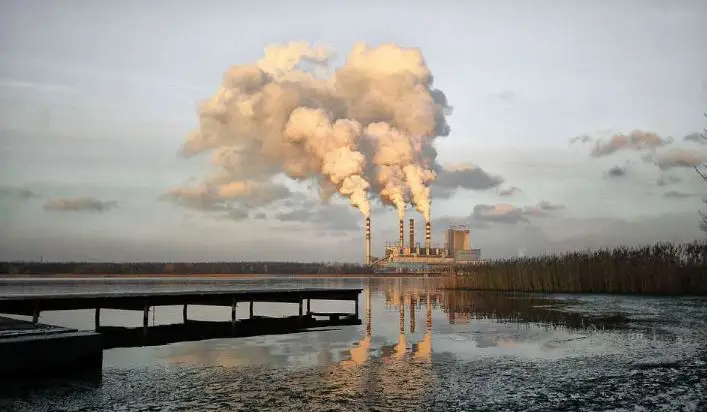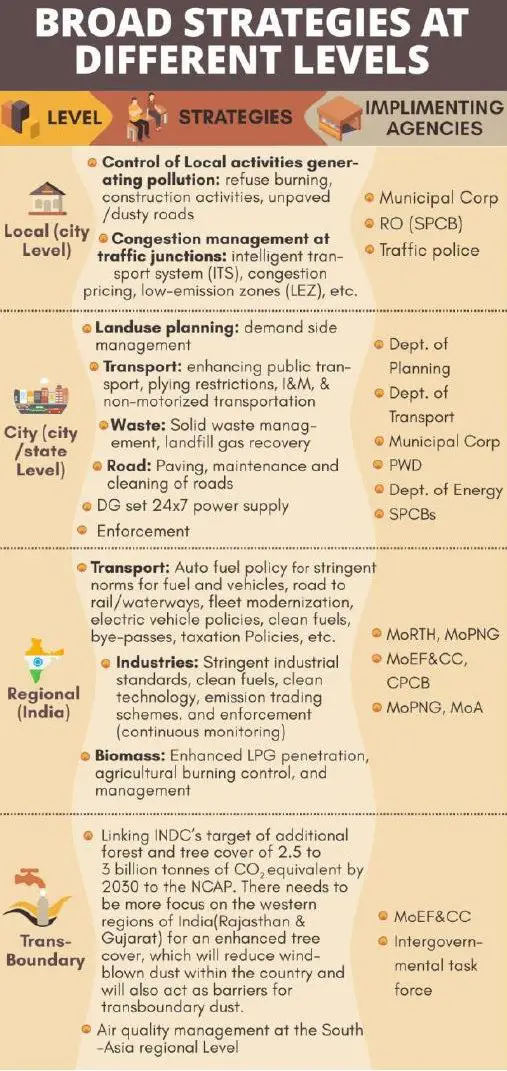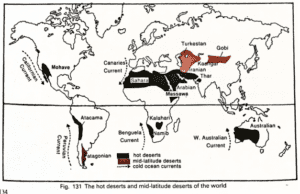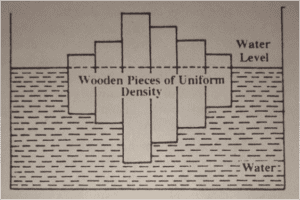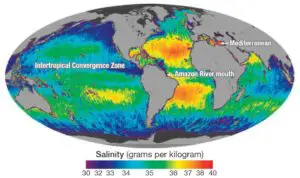Table of Contents
What is National Clean Air Programme (NCAP) ? | UPSC – IAS
- It is a pollution control initiative to cut the concentration of particles (PM10 & PM2.5) by 20-30% by 2024.
- It will have 2017 as the base year for comparison and 2019 as the first year.
- It is to be implemented in 102 non-attainment cities. These cities are chosen on the basis of Ambient Air Quality India (2011-2015) and WHO report 2014/2018.
- National Clean Air Programme (NCAP) was recently launched by – Ministry of Environment, Forest and Climate Change (MoEFCC).
Its objectives include-
- Stringent implementation of mitigation measures for prevention, control and abatement of air pollution;
- Augment and strengthen air quality monitoring network across the country;
- Augment public awareness and capacity building measures.
Significance of National Clean Air Programme (NCAP) | UPSC IAS
- First such effort – Framing a national framework for air quality management with a time-bound reduction target. The biggest advantage of such targets is that it helps decide the level of severity of local and regional action needed for the plans to be effective enough to meet the reduction targets.
- Multisectoral Collaboration and Participatory approach – covering all sources of pollution and coordination between relevant Central ministries, state governments, local bodies and other stakeholders.
- All-inclusive approach – It has tried to incorporate measures for urban as well as rural areas. Further, NCAP identifies the trans-boundary nature of air pollution and thus specifically assigns transboundary strategies in managing the air pollution in the country.
- Linking Health and Pollution: NCAP has now taken on board the National Health Environmental Profile of 20 cities that the MoEF&CC initiated along with the Indian Council of Medical Research with special focus on air pollution and health. It has asked the Ministry of Health and Family Welfare to maintain health database and integrate that with decision making.
Implementation of National Clean Air Programme (NCAP) | UPSC IAS
- The Central Pollution Control Board (CPCB) shall execute the nation-wide programme for the prevention, control, and abatement of air pollution within the framework of the NCAP.
- The NCAP will be institutionalized by respective ministries and will be organized through inter-sectoral groups, which include, Ministry of Road Transport and Highway, Ministry of Petroleum and Natural Gas, Ministry of New and Renewable Energy, Ministry of Heavy Industry, Ministry of Housing and Urban Affairs, Ministry of Agriculture, Ministry of Health, NITI Aayog, CPCB, experts from the industry, academia, and civil society.
- The program will partner with multilateral and bilateral international organizations, philanthropic foundations and leading technical institutions to achieve its outcomes.
- The Apex Committee in the MoEFCC will periodically review the progress. Annual performance will be periodically reported upon. Appropriate indicators will be evolved for assessing the emission reduction benefits of the actions.
Components of National Clean Air Programme (NCAP) | UPSC IAS
(National Clean Air Programme (NCAP) has 3 components)
Mitigation Actions: NCAP details seven mitigation actions.
- Web-based, three-tier mechanism – to review, monitor, assess and inspect to avoid any form of non-compliance. The system will work independently under the supervision of a single authority, which will ensure accreditation of three independently operating entities.
- Extensive Plantation Drive: Plantation initiatives under NCAP at pollution hot spots in the cities/towns will be undertaken under the National Mission for Green India (GIM) with Compensatory Afforestation Fund (CAF) being managed by National Compensatory Afforestation Management and Planning Authority (CAMPA).
- Technology Support: Clean Technologies with potential for air pollution prevention and mitigation will be supported for R&D, pilot scale demonstration and field scale implementation.
- Regional and Transboundary Plan: These have major role for effective control of pollution more specifically with reference to the Indo-Gangetic plain. Air quality management at South-Asia regional level by activating the initiatives under ‘Male Declaration on Control and Prevention of Air Pollution and its Likely Transboundary Effects for South Asia’ and South Asia Cooperative Environment Programme (SACEP) to be explored.
- Sectoral Interventions: This includes sectors such as e-mobility, power sector emissions, indoor air pollution, waste management, industrial and agricultural emissions and dust management.
- City Specific Air Quality Management Plan for 102 Non-Attainment Cities: based on comprehensive science-based approach, involving meteorological conditions and source apportionment studies.
- A separate emergency action plan in line with Graded Response Action Plan for Delhi will be formulated for each city for addressing the severe and emergency AQIs.
- Further, the state capitals and cities with a population more than a million may be taken up on priority for implementation.
- State Government’s participation is not limited for evolving an effective implementation strategy but also in exploring detailed funding mechanism.
Knowledge and Database Augmentation | UPSC IAS
- Air Quality Monitoring Network which also includes setting rural monitoring network, 10 city super network (overall air quality dynamics of the nation, impact of interventions, trends, investigative measurements, etc)
- Extending Source apportionment studies to all Non-Attainment cities: This will help in prioritising the sources of pollution and formulation and implementation of most appropriate action plans. A unified guideline for source apportionment study will be formulated and updated by the Centre.
- Air Pollution Health and Economic Impact Studies: Under NCAP studies on health and economic impact of air pollution to be supported. Framework for monthly analysis of data w.r.t health to be created.
- International Cooperation including Sharing of International Best Practices on Air Pollution.
- Review of Ambient Air Quality Standards and Emission Standards: The existing standards need to be strengthened periodically and new standards need to be formulated for the sources where standards are not available.
- National Emission Inventory: This will be formalized under the NCAP. Its significance is in tracking progress towards emission reduction targets and as inputs to air quality model.
Institutional Strengthening | UPSC IAS
- Institutional Framework: It involves a National Apex Committee at the MoEF&CC and State-level Apex Committee under the chief secretaries in various states. There are various other institutions being envisaged such as Technical Expert Committee and National-level Project Monitoring Unit (PMU) at the MoEF&CC and National-level Project Implementation Unit (PIU) at the CPCB.
- Public Awareness and Education: through national portals, media engagement, civil society involvement, etc.
- Training and Capacity Building: NCAP identifies lack of capacity on air quality issues due to limited manpower and infrastructure in the CPCB and SPCBs, lack of formal training for various associated stakeholders etc. as one of the major hurdle in an effective implementation of air pollution management plans.
- Setting up Air Information Centre: which will be responsible for creating a dashboard, data analysis, interpretation, dissemination. This may be set up with the assistance of the IITs, IIMs.
- Operationalize the NPL-India Certification Scheme (NPL-ICS) for certification of monitoring instrument. It will help to cater to the country’s needs with respect to the online monitoring of air pollution. The proposed certification scheme will have three major components i.e. NPL-India Certification body (NICB), certification committee, and testing and calibration facility.
- Air-Quality Forecasting System (AQFS): as a state-of-the-art modelling system, it will forecast the following day’s air quality. The satellite data available through ISRO to be integrated for monitoring and forecasting under the NCAP.
- Network of Technical Institutions- Knowledge Partners: Dedicated air pollution units will be supported in the universities, organizations, and institutions and a network of highly qualified and experienced academicians, academic administrators, and technical institutions will be created.
- Technology Assessment Cell (TAC): It will evaluate significant technologies with reference to prevention, control, and abatement of pollution. Technology induction/ transfer would be facilitated, where necessary, with time bound goals for indigenization and local manufacturing.o The TAC will be created involving the IITs, IIMs, the major universities, industries, and using the existing mechanisms and programme of the Department of Science & Technology, India Innovation Hub, etc.
